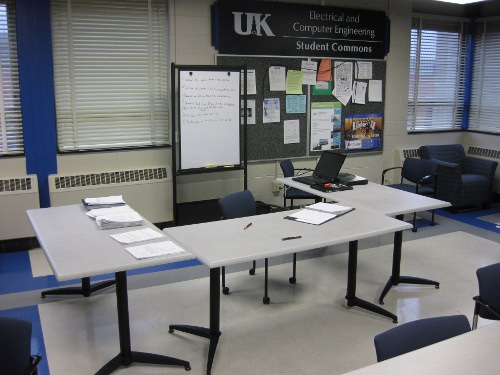One of the intents of this blog is to publicly keep track of my before and after impressions of classes to share, and since another semester is complete, it’s time to repeat the process. The Spring 2010 “Before” post can be found here, and the link chain can be followed back. This one is a little belated from travelling immediately after the semester ended.
CS585:Linux Internals/Finkel
This is a very, very good class, which is also a HEAP of work. It really is taught by discussing the inner workings of some part of the kernel in class, and writing programs that manipulate them in some way… unfortunately, the detailed discussions and programs are not necessarily in the same order, or even the same topics, so very much of the value of the class is being given pointers on topics to learn indipendently. With that in mind, resources wise, Robert Love’s Linux Kernel Development is a really excellent book, that I would have done well to actually read ahead in instead of constantly using to catch up, and LXR is unbelievably useful for working with kernel code.
Keeping it short, if you want to be able to do *useful* things with operating systems, this class is perfect, and Dr. Finkel’s instruction was, as always, excellent. Just be aware you will be doing a lot of time consuming independent learning and programming.
PSY562:Human Technology Interaction/ Carswell
This class is in the unusual position of being at once very interesting and very easy. I love the topic, to the point that my current first-choice PhD program when the time comes is in the area, so getting some formal credentials to support my interest was a high-value proposition. While I would have liked a little more depth, and a little more variety in perspective; we took a very Human Factors/ Ergonomic perspective most of the time; the topic has historically also been approached from a more classical psychological perspective, an Industrial Design perspective, and (my favorite) an Information Theory perspective, it provided an excellent overview for people who didn’t have as much prior reading, and was still an excellent exercise for those of us who did.
The class dynamic was pretty cool with the mixture of psychology seniors and other-topic “upper level” (mostly graduate) students. The other-topic graduate students tended to be considerably more vocal (sometimes to a fault) than other groups in class, and we all seemed to have higher expectations of what would be demanded of us than other students or the actual expectations, which was instrumental in preventing it from ever becoming stressful. From talking to other students, finding the class easy wasn’t limited to people with significant prior knowledge, so I’m reasonably sure I’m not just expressing my own skewed perception.
The project around which a lot of the class work and discussion was based was a usability/Human-Factors analysis of Lexington’s Mass Transit System (LexTran). Although it wouldn’t have occurred to me as an obviously suitable topic, the sad state of LexTran, the broad variety of issues to be addressed, and the LexTran official’s willingness to to get involved made for a very good situation. My particular project was on designing appropriate mechanisms to display bus tracking (AVL/GPS) information to users, and focused chiefly on the design of suitable smart signage, but other individual projects included website design, map design, route planning and representation, and environmental improvements for the transit center itself. This is the UK PR article (which is, amusingly, on a webpage that is a usability nightmare) about the class project, and even has a terrible picture of me from the final poster session.
Apparently it will be offered again next semester, which is interesting because this was the first time it had been offered in a while, and I highly recommend anyone interested sign up, especially if you have an otherwise intense semester planned, as it manages to not be difficult or time consuming, while also avoiding being a waste of time. As best I can make out, the requirements for instructor consent are “Seem Competent/Interesting” and “Express Interest,” since Dr. Carswell is quite interested in having a variety of disciplines represented, making it is an option for a wide variety of students.
TAing EE281
It turns out I really do enjoy teaching, which is extremely fortunate given my intended career. Most of the kids actually seem to have learned something from being in my class, and initial opinions from both students and faculty seem to be that I did a good job. I cleaned up the grading policies (created a set of fixed-form rubrics for all the assignments, etc.), and have a set of notes from the labs on necessary modifications and improvements. It also really, really improved my ability to work with Verilog, especially debugging, since dealing with 30some inexperienced coder’s problems exposes one to a LOT of code, with a lot of different approaches and bugs.
The plan is for me to do a little bit of writing up (ABET, and some internal-to-UK thing) from my notes over the summer, and TA the same course again in the fall, which I’m actually kind of looking forward to.
Overall: Hooray. I like what I’m doing, I like where it’s headed, and I’m not feeling over-extended like I did in some of my more intense semesters as an undergraduate.












